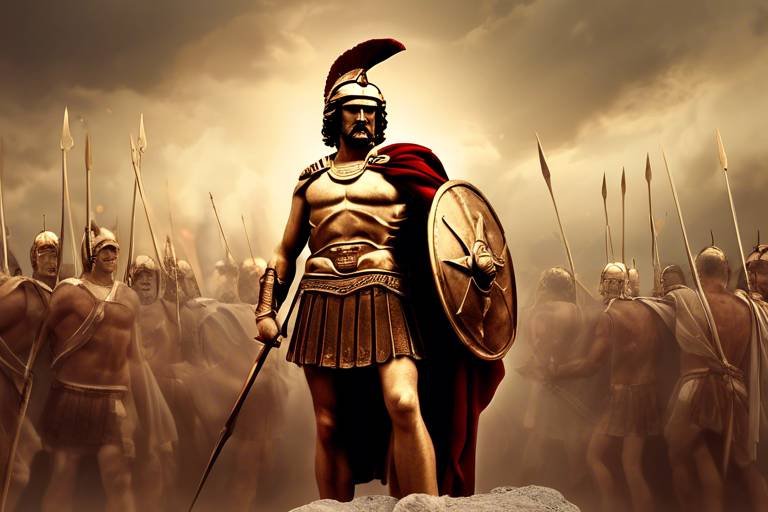Alexander of Macedon: The Conqueror of the Known World
Alexander of Macedon, famously known as Alexander the Great, stands tall in history as one of the most celebrated military leaders to have ever lived. His conquests reshaped the known world, extending his empire across vast continents and leaving an indelible mark on the ancient world.
From his early days under the mentorship of the great philosopher Aristotle, Alexander's education laid the foundation for his future ambitions of conquest and empire-building. Influenced by the teachings of Aristotle, he harbored grand aspirations that would eventually propel him to greatness.
Embarking on his conquests in Asia Minor, Alexander showcased his strategic brilliance and military prowess, swiftly establishing himself as a formidable commander. His early campaigns set the stage for the monumental feats he would achieve in the years to come.
The conquest of the mighty Persian Empire marked a turning point in Alexander's reign, solidifying his dominance in the region and expanding his empire's borders. His victory over Persia was a testament to his tactical acumen and unwavering determination.
Undeterred by the challenges that lay ahead, Alexander set his sights on the vast lands of the Indian subcontinent, embarking on a daring journey that tested the limits of his empire. Pushing ever forward, he sought to conquer new lands and peoples, further cementing his legacy as a conqueror.
Alexander's conquests not only reshaped geographical boundaries but also facilitated cultural exchanges that left a lasting impact on the Hellenistic world. His influence extended beyond military conquests, shaping art, literature, and politics in profound ways.
As the ruler of a vast empire, Alexander faced the daunting task of governing diverse territories with varying cultures and traditions. His policies on multiculturalism and administration strategies were crucial in maintaining control over his vast dominions.
Following his untimely death under mysterious circumstances, a power struggle ensued among his generals, leading to a period of instability and uncertainty. The question of succession loomed large, threatening to unravel the empire he had worked so tirelessly to build.
The legacy of Alexander the Great lives on through the lens of history and mythology, with various interpretations of his life shaping the narratives that have endured through the ages. The myths and legends surrounding his conquests continue to captivate imaginations, solidifying his status as the Conqueror of the Known World.

Early Life and Education
Alexander the Great, born in 356 BC in Pella, the ancient capital of Macedonia, was the son of King Philip II and Queen Olympias. From a young age, Alexander showed great potential, receiving an education that would shape his future conquests. Under the guidance of the renowned philosopher Aristotle, who was his tutor until the age of 16, Alexander was exposed to a wide range of subjects, including philosophy, literature, medicine, and the arts. Aristotle instilled in him a love for learning and a thirst for knowledge that would fuel his ambitions for greatness.
Growing up in the royal court of Macedonia, Alexander was influenced by the stories of his ancestors' military exploits and the grandeur of the Persian Empire. These tales ignited a fire within him, sparking a desire to surpass the achievements of his predecessors and carve out his own legacy as a conqueror. His exposure to the diverse cultures and traditions of the ancient world during his formative years broadened his perspective and instilled in him a sense of curiosity about the unknown lands beyond the borders of his homeland.
As a young prince, Alexander participated in military campaigns alongside his father, King Philip II, further honing his strategic skills and leadership abilities. His early experiences on the battlefield provided him with valuable lessons in warfare and diplomacy, shaping his approach to conquest and empire-building. By the time he ascended to the throne at the age of 20 following his father's assassination, Alexander was already a seasoned commander with a vision to expand the boundaries of his kingdom and conquer the known world.

